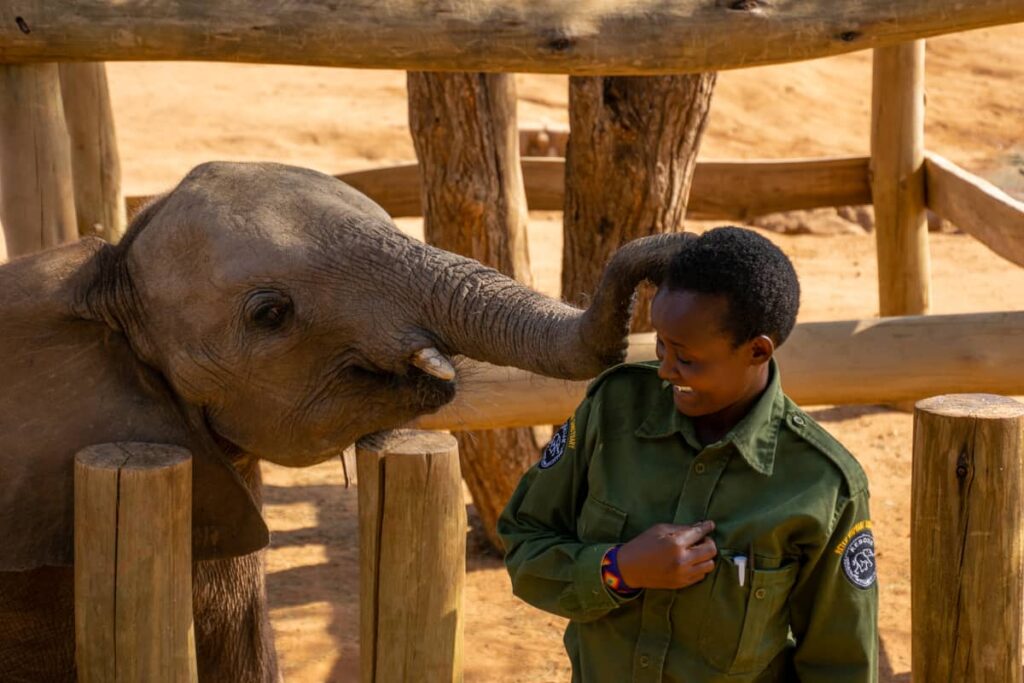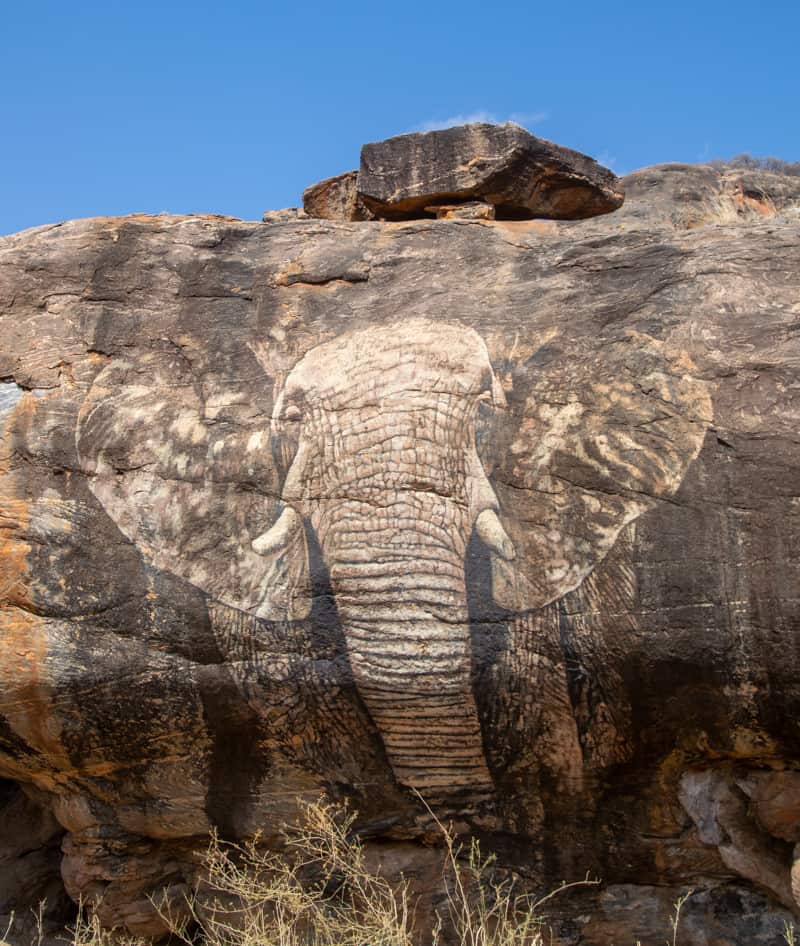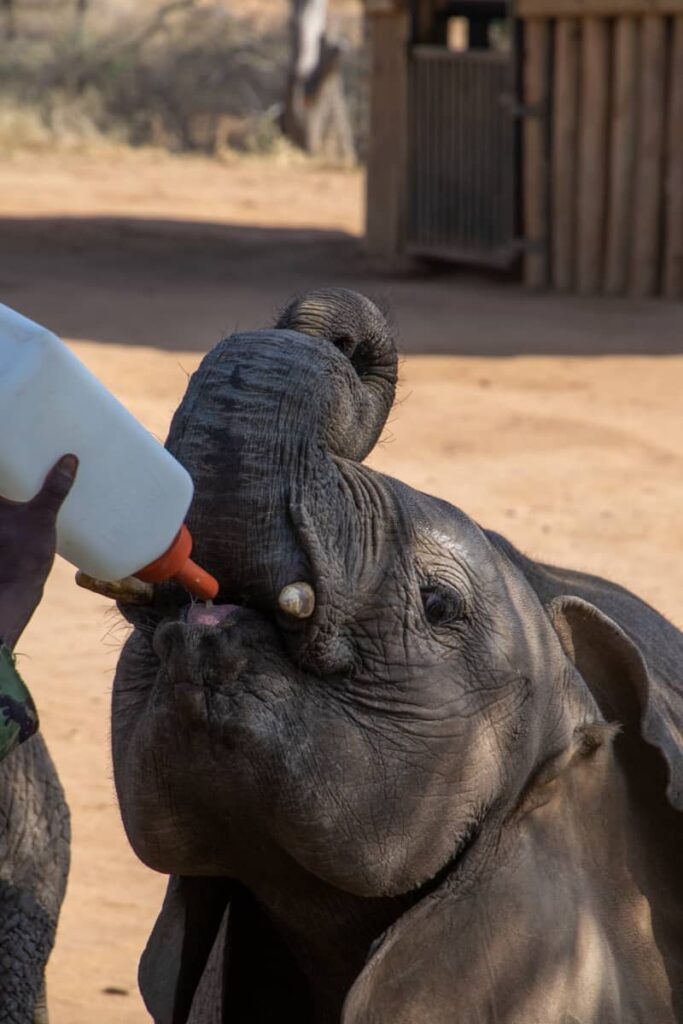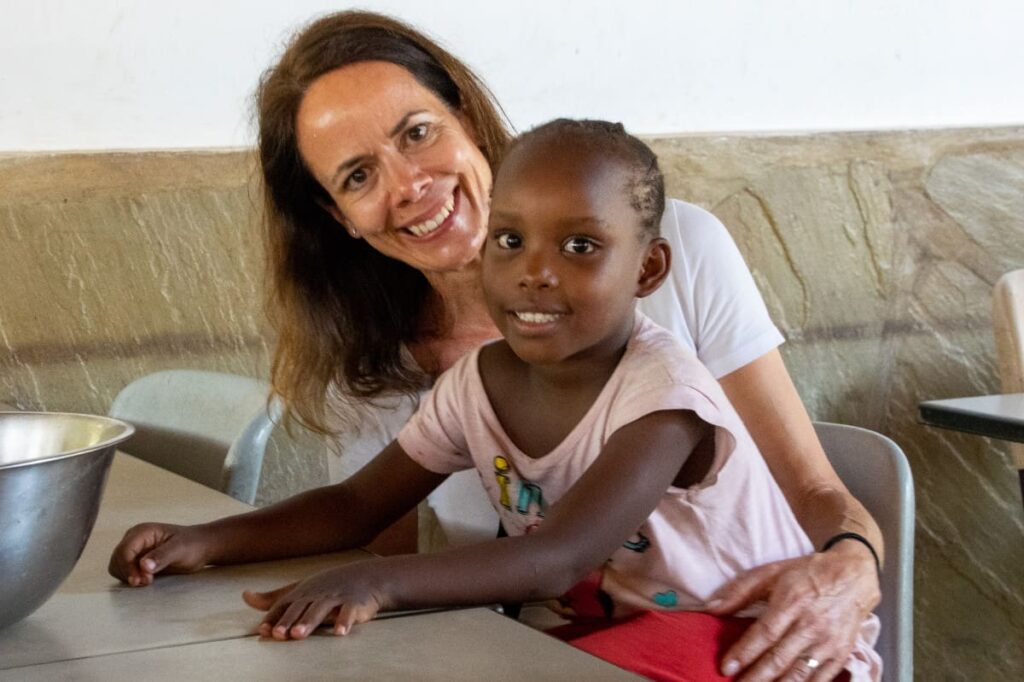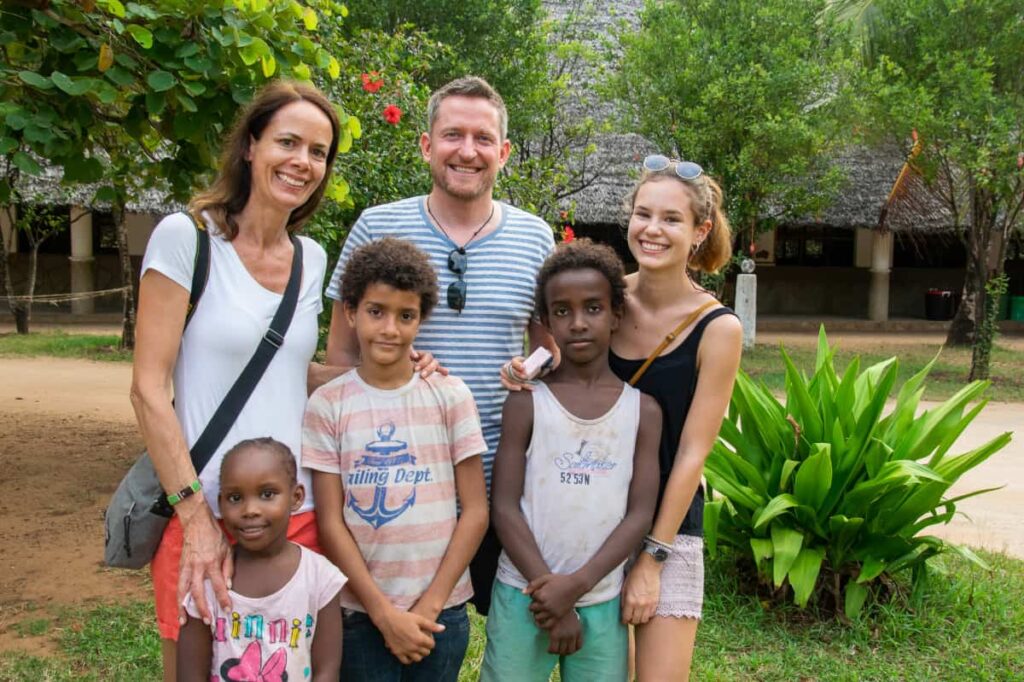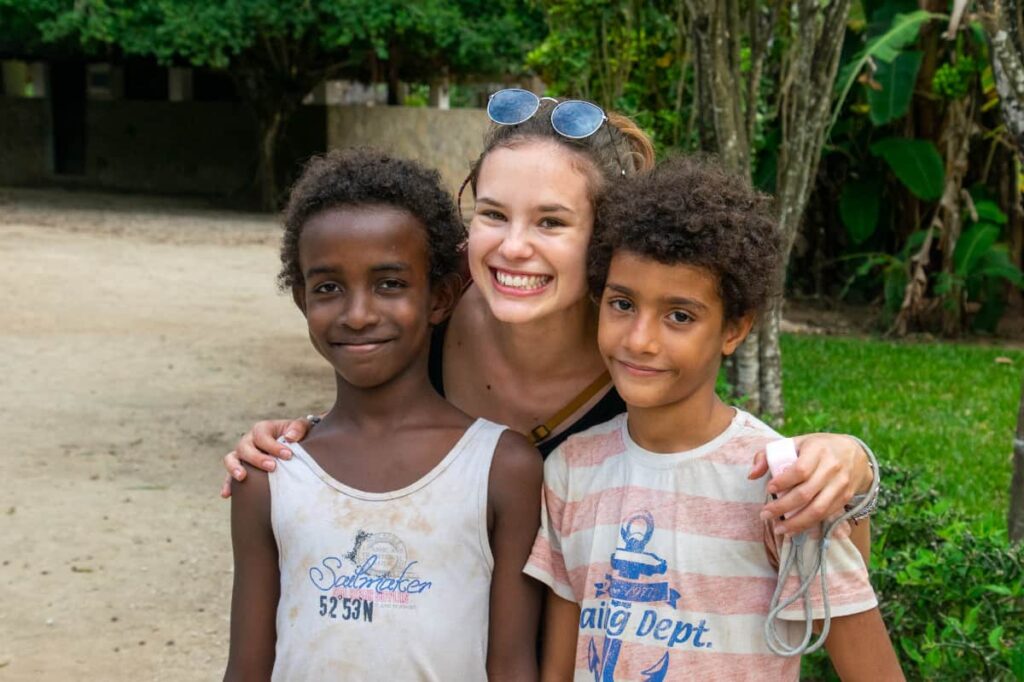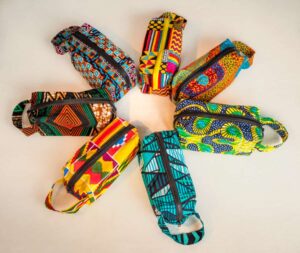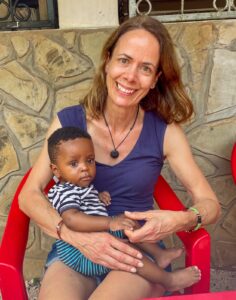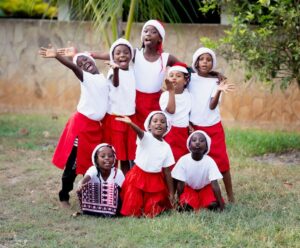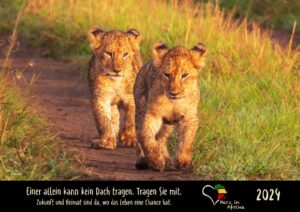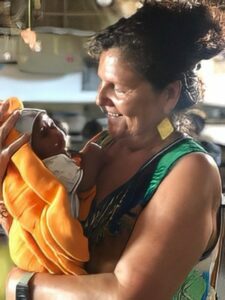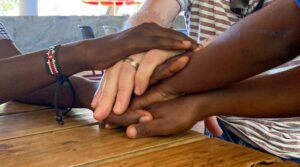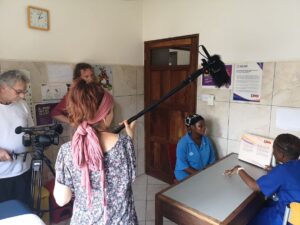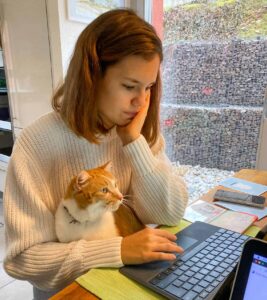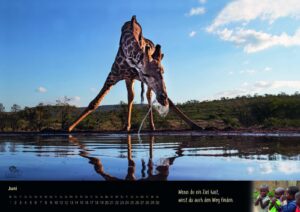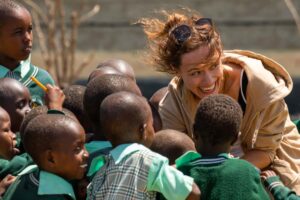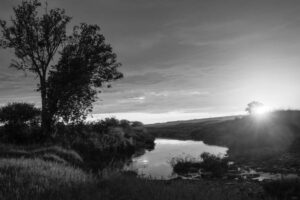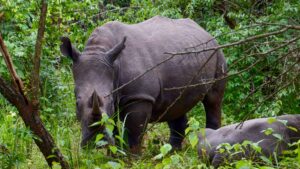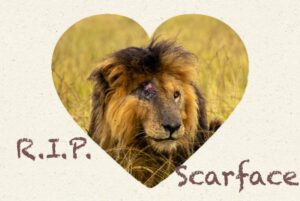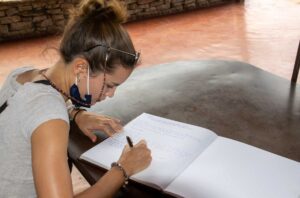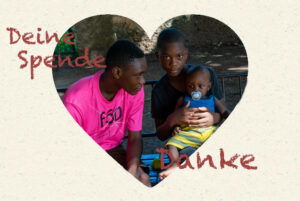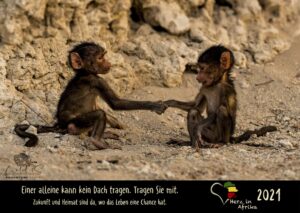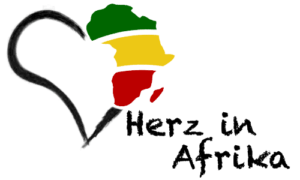Uncertainty to the very end.
We travel to Kenya
We had booked our private Kenya trip before Covid19 and even in the summer of 2020 we would never have thought that this virus would still have such an impact on our lives in 2021. In the weeks leading up to our departure, new announcements come pouring in: Virus mutations, constantly changing entry regulations, digitally certified PCR tests, FFP2 masks, … But we don’t have a plan “B”: Two weeks before our trip to Kenya, we go into self-imposed “quarantine”, and in the end everything works out fine. With a negative PCR test and all the necessary formalities, we travel to and through Kenya without any problems. From the airport to the airlines to the lodges, everyone is well prepared for Covid19 and we can enjoy our trip to the fullest, just like in Covid19-free times. Our temperature is measured daily in every accommodation and when the locals nod at us with smiles when they see readings like 34.2°, we can’t help smiling 😉
"Happiness does not happen to you -
Happiness is found by those who seek it".
«the first community owned and run elephant sanctuary»
Reteti Elephant Sanctuary
Also on this Africa trip we would like to get to know new sustainable and social regional projects and institutions. Our first stop is the Reteti Elephant Sanctuary in Samburu County, in northern Kenya. Species conservation is nothing new and yet the sanctuary can be considered a pioneering achievement: It goes back to an initiative of the local population, which sees the wild animals as an opportunity to improve their living conditions and is run entirely by locals. Every year, between five and ten elephant calves are rescued in northern Kenya, out of a population estimated at 8,700 animals. Once heavily affected by poaching and severely degraded by instability, the Samburu region is now recovering through transparent, self-managed conservation policies that promote the preservation of natural resources to create stability as well as employment and income for the regional population. All animal keepers come from the local community.
Visiting the orphanage is very impressive. We learn about the sad fates of the baby elephants. Although elephants care for their young with full devotion, it happens again and again that elephant babies lose their herd. There are many reasons:
- Poaching
- Diseases
- Conflicts with the farming population
- Separation by hunting from other wild animals
As they cannot survive on their own, the orphaned and abandoned elephant calves are taken in at the “Reteti Elephant Sanctuary” and nurtured so that they can later be reintroduced into the wild herds in the area surrounding the sanctuary. About every three hours, they get their shopping. Right on time for feeding time, they come trotting along, wrap up their trunk around the extra-large milk bottle, sucking with relish and drinking at a breathtaking pace. It doesn’t even take a minute and almost six litres of milk have disappeared.
While elephant poaching continues to reach unsustainable levels in other parts of Africa, the proportion of elephants killed illegally in northern Kenya has fallen by 53% since 2012. However, the growing number of people in Kenya is leaving less and less habitat for elephants. Elephants come onto farms and can destroy crops on square kilometres in one night. This kind of thing stirs up hatred for the animals. And if they are traumatised by poaching or conflicts with humans, they become shy and very aggressive. It’s a vicious circle: “Elephants raid a farm. People kill an elephant. The animals can communicate this over dozens of kilometres. They get nervous and kill people. And everything starts all over again.” Raising community awareness and defusing human-wildlife conflict is thus one of the central and important tasks of the Reteti Elephant Sanctuary.
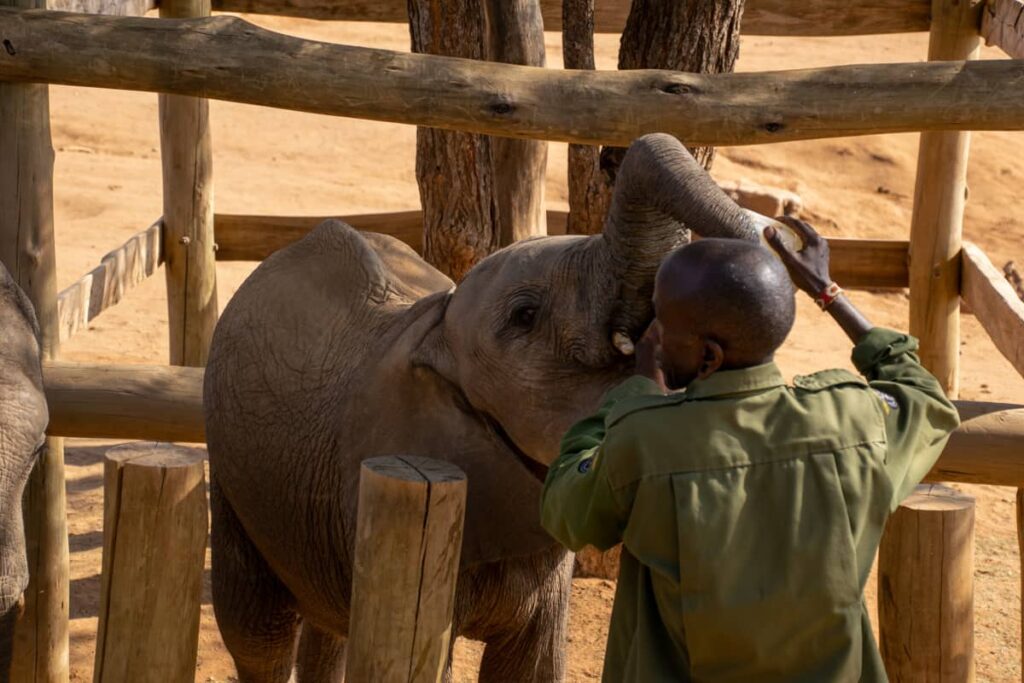
The running costs of the sanctuary are surprisingly high, even by Kenyan standards. For example, the rescue and transport of a baby elephant costs about $2,500, the milk per week and elephant calf $225. Fortunately, the Reteti Elephant Sanctuary is financially supported by national and international institutions, for example also by the San Diego Zoo. Even though every financial support is sustainable and we gladly accept individual donations for this purpose, for the time being we will primarily focus on smaller Africa projects, as the dimension of this project exceeds our current possibilities.
"The greatest sight - that there is, is the world - see it".
(Kurt Tucholsky, German journalist and writer.)
The social commitment of Jo and John - Malaika Camp".
OLARE OWANG PRIMARY SCHOOL
After our stay in Samburu Country and the impressive animal visit to the baby elephants in the Reteti Elephant Sanctuary, our journey takes us further into the Maasai Mara, where we are guests of John and Jo at Malaika Camp. We became aware of the camp and the hosts in Africa forums a long time ago. John grew up in the Masai Mara and knows the people, flora and fauna like no other and Jo Fink is a photographer (www.jofink.com) from Germany. What particularly appealed to us, however, is that Malaika Camp is strongly committed to supporting the local Masai population.
The focus of their commitment is to support the Olare Owang Primary School. As Jo tells us, up to 80 children sat on the floor in completely overcrowded school classes. They had tables and benches made by local carpenters and the children could not believe that they now had their own school desk to study at.
Unfortunately, it was not possible for us to visit the school and the children during our stay. Due to heavy rains, the river that separates our camp and the school had too much water, so that a crossing was not possible. But we are sure that we will visit Jo and John again on our next trip to Kenya and then hopefully the visit to the school will work out. We are already looking forward to meeting the children and this project in person.
Impact of the Covid19 pandemic
Due to the COVID19 pandemic, tourism in Kenya’s Masai Mara has plummeted. Many camps have closed, trade is down and behind every worker there are 8 to 10 family members who need to be taken care of. More than 100 families of school children have nothing to eat!
In an aid campaign by “Education vor all e.V.” in cooperation with the Malaika Camp, the families currently receive a food package of oil, maize and rice per month. For about 45,- EUR a family of 8 to 10 people can survive 1 month!
Also, with a donation of 100 euros, a child can go to school for one year and the school fees and school clothing are paid for with it.
Just back in Switzerland, we received the sad news that a heavy storm had destroyed the roofs of several school buildings. The storm and the heavy rain severely damaged or destroyed the inventory. Also, the solar system that ran a water well and thus the water supply for the school and the people in the area was completely destroyed.
We gladly accept donations for the families and the school children. We are sure that through John and Jo, any help here will reach 100%.

Donations for the school children/families
Keyword "food parcel" or "school fees
Büntengarten 28, CH – 4147 Aesch
IBAN: CH17 0076 9434 5670 6200 1
The Olare Owang Primary School is also supported by the German association Education for all e.V.. Thanks to the great support, a school building with a library and the construction of a drinking water well could already be realised.
"Those who get into the same boat together, wants to do the same"
"Reunion is just beautiful"
Visit to the Nice View family
Finally, it’s that time again and our third visit to the Nice View family is just around the corner. Equipped with Ice-Cream and negative Covid test, we can leave for the children’s village quite unconcerned.
As soon as we arrive at Nice View Village, the children arrive as well. Timo, Oli and Nathalie – our godchildren – recognize us immediately, hug us joyfully and the welcome with all the children is warm. Seeing all the smiling, laughing and chatting children again is just touching.
As this is Sarah’s first visit to Nice View, a detailed tour of the entire children’s village is naturally part of the program. The simple but with a lot of love and colorful furnished children’s houses are always a highlight.
After a delicious lunch, we mainly spend a lot of time with the children. First there is a little “kitchen work” and together with the children beans/peas are prepared. Our cameras are a hit with the kids, as always, and they love seeing themselves in the photos on display. You practice as a photographer and model 😉
In the afternoon we are invited for a coffee at Beat’s place in Paradisegarden. Beat founded the Pamoja association to support the Nice View Homes construction project. According to the motto “help for self-help”, the accommodation “Nice View Cottages” – beautifully situated on the beach but only a few minutes away from the children’s village – is currently being built. The relief organization still lacks trained qualified personnel who can cope with a wide range of tasks in a professional manner. Volunteers and interns who want to make their knowledge and skills available to the institution free of charge and thus enable a transfer of knowledge, should be offered with the cottages a cheap attratkive housing opportuni The income from the hospitality business will also provide a source of income for the Nice View and create jobs for the local villagers. With the swimming pool further the Nice View children have the opportunity to learn to swim.
The facility and the cottages have become beautiful. Impressive what has been created here in only one year of construction and the great financial support of Beat and the Pamoja Association. The cottages can soon be booked via the homepage of Paradisegarden.
At the end of our Nice View visit, we have the honor to present Mama Gudrun our Africa Calendar 2021 symbolically for the donation proceeds for the Nice View.
With the sounds of a drum session with Beat, it is unfortunately time to say goodbye to the children and Mama Gudrun. Dear Nice View Famila, Asante Sana for the happy carefree hours with you, until next time.
On the way home we pass by Kahindi. Kahindi grew up in Nice View Children’s Home and now works as an artist/painter in Diani. In his store we still cover ourselves with a few pictures of him, which can now be bought in our web storefor a good cause.
